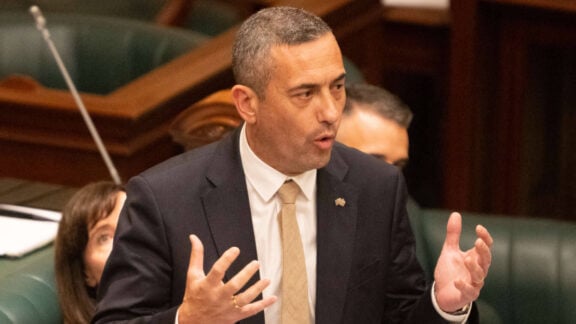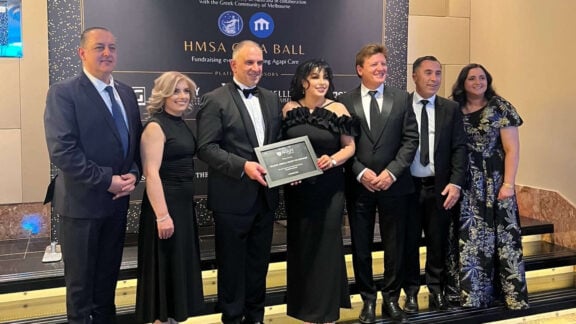Katerina Sakellaropoulou’s official visit to Australia has been “postponed” until further notice, diplomatic sources informed Neos Kosmos. The President of the Hellenic Republic was expected to arrive in November—a few weeks after the visit of the Ecumenical Patriarch Bartholomew—as a reciprocal gesture following the visit of Australia’s Governor-General, David Hurley, to Greece in May of last year.
The visit was initially announced by Greece’s Consul General in Melbourne, Emmanuel Kakavelakis, during his speech at the Hellenic Museum, where a reception was held to celebrate Greek Independence Day on March 25, 1821 and was published in Neos Kosmos in February.
Sakellaropoulou, who was elected President in March 2020 for a five-year term, and expressed her interest in visiting Australia in a June interview with journalist Apostolos Mangiriadis on ERT, marking 50 years since the restoration of democracy in Greece. She reflected on the emotional experiences she had during her encounters with the Greek Diaspora.
In the interview, she shared her desire to visit Australia in the coming months.
The president at the time said: “I have experienced deeply emotional moments with the Greek diaspora because they are present everywhere.”
She highlighted the emotions she felt when visiting Southern Italy where Greeks have maintained a presence since antiquity.
“Before I addressed them—at events held in every village I visited in Southern Italy. They cried, because of what I represented—the President of the Hellenic Republic visiting their region.
“They spoke a beautiful blend of Italian and Greek, and it was truly moving. But everywhere, we see that the Greek diaspora carries the essence of Greece.
“I haven’t been to America yet, but perhaps I will visit Australia this fall, as the Greek expatriates there greatly desire contact with state and political leadership representatives, and the President of the Republic holds a special place.”
Sakellaropoulou said that in the 200 years of the Greek State, that there has always been a Diaspora, “another Greece outside of Greece”, and called it “our strength.”
“They are our best ambassadors [and] the younger diaspora consists of those who left during the crisis—the brain drain—and it’s unfortunate that Greece is deprived of them. “On the other hand, we are proud to see Greeks flourishing everywhere, creating with the hope that conditions will be established in Greece for many of them to return, as we need them to move forward. This is one of our greatest assets.”









